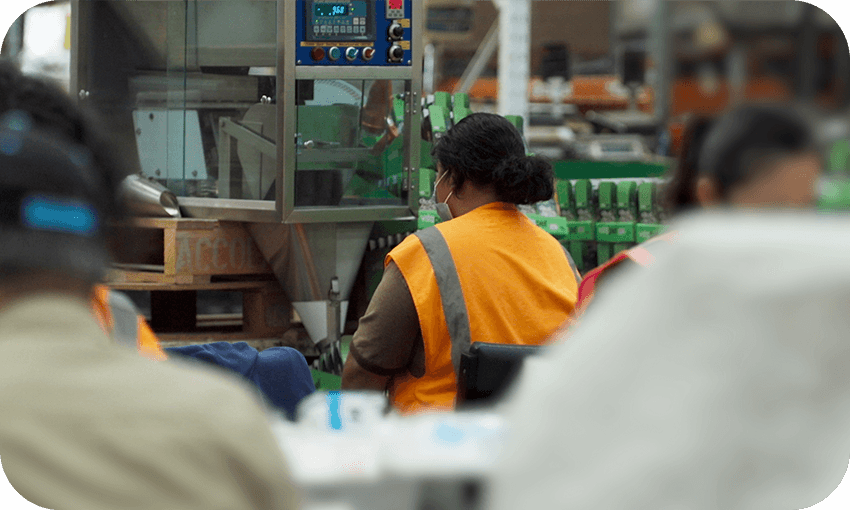With productivity hailed as the essence of our work culture, a large sector of society is labelled as unproductive and stripped of basic rights. Disability activist Robyn Hunt responds to Alice Snedden’s Bad News on the Minimum Wage Exemption.
Disabled people have been paid below the minimum rate since colonial times, a fact unknown to most, including Alice Snedden, as she reveals in the latest episode of Bad News, on the Minimum Wage Exemption.
More than a century later Alice visits one of the last of the sheltered workshops, a paternalistic tradition in which disabled people, mostly those with intellectual or learning disabilities work for a pittance on simple menial tasks. Most workshops closed in 2007 with the repeal of the Disabled Persons Employment Promotions Act. The repeal gave disabled people the same rights as other workers, such as sick leave and holidays, well sort of.
The Employment NZ website states that every employee over 16 must be paid at least the minimum wage unless they have a minimum wage exemption permit. Labour inspectors may issue minimum wage exemption permits to employees who have a disability that limits them carrying out the requirements of their work. Guidance is provided on making that judgement.
It says that if the employee is a union member, the union will need to agree to the employee being paid at a different rate than the pay rate in the collective agreement. There was no mention of Altus employees being union members in Bad News. She doesn’t ask about rights beyond low pay. Altus Enterprises appears to operate as a traditional sheltered workshop.
There are currently 900 exemptions nationally, and 95 of those exempt people are employed at Altus. Most are beneficiaries, so the amount they can earn without abatement is limited.
Altus describes itself on its website as “a non-profit organisation that exists to provide work for people with disabilities. We aim to realise potential and bring the sense of purpose and social inclusion that work provides to all our employees… Our vision is a world where everyone feels valued and purposeful regardless of their physical or intellectual challenges.”
There is emphasis on the feel-good factor for those who buy Altus services or products, and a request for donations.
Alice raises the thorny question of “productivity”. Workplaces are based on this notion. Whether you are producing widgets or ideas your productivity is critical, except, not always. Alice cites jobs she has had where her own productivity was practically zero. But for disabled people, deficit and low productivity is the first assumption and, unlike non-disabled people, we have to prove otherwise, often without the technology, minor workplace or work practice changes or support that would help us become more “productive”.
Value and purpose do not rest on paid work and productivity. Disabled people who work are valuable. Disabled people who can’t work are valuable. Disabled people are valuable. Values of belonging, community and inclusion do not require working in a ghetto. Would the Altus workers choose something different if they had more options?
Human rights lawyer Dr Huhana Hickey is rightly clear about alternatives. She calls sheltered workshops a “cop out,” saying that disabled people are diverse and more capable and creative than people think, but their abilities are minimised, they are often paid a pittance for work that others would earn more for doing. She says all working people should be paid a living wage, that the benefit is barely enough for a decent life.
Parents want their children to be able to safely leave the confines of the family as they mature, and have meaningful occupations and age-appropriate activities. The idea of someone being described as having the “mental age of a five year old” is contradictory, when they then go out to work. We also know that education opportunities for many disabled people, especially those with learning disabilities are still far from adequate.
That disabled people are safe in a ghetto is questionable, as we are discovering with the current royal commission of inquiry into abuse in state care. “Sheltered” workshops have not always been safe places.
Altus proprietor Martin Wylie says that one person travels by train all across Auckland to be there, he loves it so much – the commute possibly costing him more than he earns. How many choices doses this person have? While no one has unconstrained choice, the most disadvantaged disabled people are more constrained than most.
Two workers talk about their work. There is nervous laughter, but unless you have high levels of self-confidence and autonomy, who is going to criticise the situation where there’s a clear power imbalance, especially if you don’t know of alternatives?
Wylie’s attitude is definitely “I know best”, but he has a point when he challenges Alice on whether or not there are any disabled people in her production team. She can’t answer either way. She in turn asks former disability minister Carmel Sepuloni how many disabled people work in her office. She doesn’t know either. No one is squeaky clean here.
It is indeed Bad News. It is unjust to accept a lower standard of rights for people who are considered of lesser worth on the basis of “productivity”. We can do better.
Listen to the audio description of Bad News: Minimum Wage Exemption at Attitude Live. And watch all of Alice Snedden’s Bad News episodes here.



